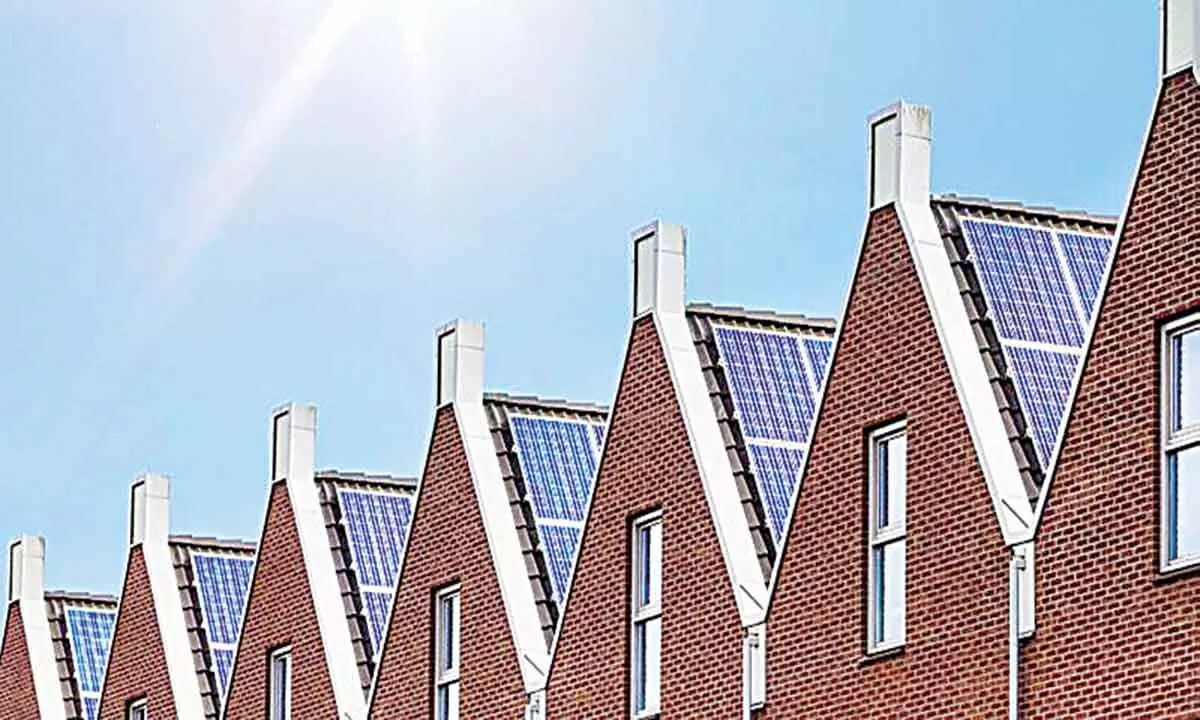Investors worried over downturn in $20-trn US commercial realty mkt
Just as lenders to the sector grapple with turmoil triggered by rapidly rising interest rates, the value of buildings such as offices is crashing that could add to pain for banks
image for illustrative purpose

London: Investors and regulators on high alert for signs of trouble in the financial system following recent bank failures, are now homing in on the downturn in the $20 trillion US commercial real estate market, according to media reports.
Just as lenders to the sector grapple with turmoil triggered by rapidly rising interest rates, the value of buildings such as offices is crashing. That could add to pain for banks and raise concerns about damaging ripple effects.
"Although this is not yet a systemic problem for the banking sector, there are legitimate concerns about contagion," said Eswar Prasad, an economics professor at Cornell University.
In the worst-case scenario, anxiety about bank lending to commercial real estate could spiral, prompting customers to yank their deposits. A bank run is what toppled Silicon Valley Bank last month, roiling financial markets and raising fears of a recession in the US.
Asked about the risks posed by commercial real estate, Federal Reserve Chair Jerome Powell said last month that banks remained "strong" and "resilient". But attention is growing on the links between US lenders and the property sector.
"We're watching it pretty closely," said Michael Reynolds, vice president of investment strategy at Glenmede, a wealth manager, CNN reported. While he doesn't expect office loans to become a problem for all banks, "one or two" institutions could find themselves "caught offside".
The commercial real estate sector - which spans offices, apartment complexes, warehouses and malls - has come under substantial pressure in recent months. Prices in the US were down 15 per cent in March from their recent peak, according to data provider Green Street. The rapid increase in interest rates over the past year has been painful, since purchases of commercial buildings are typically financed with large loans, the reports said.
Office properties have been getting hammered the hardest. Hybrid work remains popular, affecting the rents many building owners can charge. Average occupancy of offices in the US is still less than half March 2020 levels, according to data from security provider Kastle.
"You have fundamentals under pressure from work from home at a time when lending is less available than (it has been) over the last decade," said Rich Hill, head of real estate strategy at Cohen & Steers. "Those two factors will lead to a pretty significant decline in valuations."
Trouble may build as the economy slows. Hill thinks US commercial property valuations could fall roughly 20 per cent to 25 per cent this year. For offices, declines could be even steeper, topping 30 per cent. "I'm more concerned than I've been in a long time," said Matt Anderson, managing director at Trepp, which provides data on commercial real estate. Signs of strain are increasing. The proportion of commercial office mortgages where borrowers are behind with payments is rising, according to Trepp, and high-profile defaults are making headlines. Earlier this year, a landlord owned by asset manager PIMCO defaulted on nearly $2 billion in debt for seven office buildings in San Francisco, New York City, Boston and Jersey City, CNN reported.

